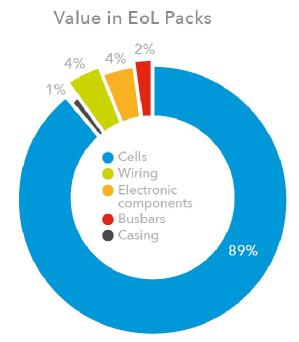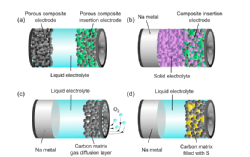Press Releases
The ultimate conditions to get the most out of high-nickel batteries
It is common knowledge in battery manufacturing that many cathode materials are moisture sensitive. However, as the popularity of high nickel-based battery components increases, researchers from WMG, University of Warwick have found that the drier the conditions that these cathodes are stored and processed in, then significant improvement in performance of the battery is gained.
New research says Sodium-ion batteries are a valid alternative to Lithium-ion batteries
Report fears UK could lose out to the rest of Europe in crucial automotive battery recycling market
 |
The UK is at significant risk of falling behind in the electric revolution and losing out to the rest of Europe on a crucial automotive lithium ion battery recycling market according to a new research report published this week by WMG at the University of Warwick and backed by the Advanced Propulsion Centre UK, the High Value Manufacturing Catapult and Faraday Battery Challenge at Innovate UK. The report entitled Automotive Lithium ion Battery Recycling in the UK by WMG, at the University of Warwick calls for the UK to move quickly to establish commercial scale recycling for automotive lithium ion batteries |
Battery life for wearable electronic devices could be improved with design considerations to stress asymmetry clues in cylindrical battery cell formats
Researchers in WMG and the Department of Physics at the University of Warwick have found that asymmetric stresses within electrodes used in certain wearable electronic devices provides an important clue as to how to improve the durability and lifespan of these batteries.
Used Nissan LEAF batteries given “second life” thanks to WMG, University of Warwick
The ability to reuse high numbers of Electric Vehicle Lithium Ion batteries for domestic and industrial use is becoming a reality for Nissan thanks to a new grading system developed by researchers at WMG, University of Warwick.
Car batteries can be frozen for safer transportation
Currently transporting damaged and defective car batteries is an expensive process as they need to be placed in an explosion proof box which costs thousands of pounds, however researchers from WMG at the University of Warwick in collaboration with Jaguar Land Rover engineers have been able to freeze batteries with Liquid Nitrogen.

